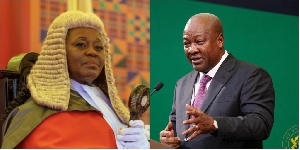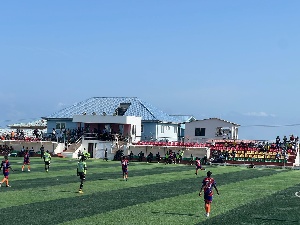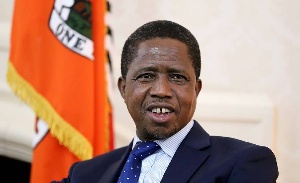- Home - News
- Elections 2024
- News Archive
- Crime & Punishment
- Politics
- Regional
- Editorial
- Health
- Ghanaians Abroad
- Tabloid
- Africa
- Religion
- Photo Archives
- Press Release
General News of Friday, 28 March 2025
Source: www.ghanawebbers.com
Processes were already underway to forward petitions to CJ for response - Presidency clarifies
Processes are underway regarding three petitions to remove Chief Justice Gertrude Torkonoo. This information comes from a letter sent by the presidency.
The President received the petitions and forwarded them to the Council of State. This was done as required under Article 146(6) of the Constitution.
On March 24, the President notified the Chairman of the Council of State. He asked that the petitions be shared with the Chief Justice for her responses.
This clarification follows a letter from the Chief Justice on March 27. She requested access to the petitions so she could respond properly.
Before her letter, a lawsuit was filed by an NPP Member of Parliament. The suit challenges how the President is handling these petitions.
The lawsuit argues that the Chief Justice should be informed before any processes begin. The Supreme Court has scheduled a hearing for this case on April 2nd.
A letter dated March 28, signed by Callistus Mahama, Secretary to the President, details these events. It confirms that on March 24, 2025, the President forwarded the petitions to Doe Adjaho, Chairman of the Council of State.
The letter states that this action is part of constitutional consultation under Article 146(6). On March 27, he received responses from Adjaho agreeing to this request.
The petitions were submitted by three individuals on February 14 and March 17, alleging misconduct and abuse of power.
President John Mahama has given Chief Justice Torkonoo ten days to respond to these removal petitions.
However, he expressed disappointment over a leak concerning her request for access to those petitions.
He noted that her letter circulated online before he could review it.
This letter was reportedly shared alongside another addressed to various legal officials in Ghana.
Due to this leak, the Office of the President will mark all attached documents as ‘restricted’. This aims to protect official correspondence's confidentiality.
Entertainment










